Lithium Battery Suppliers USA Procurement Guide
With the rapid development of lithium battery technology and its widespread application in energy storage, golf carts, forklifts, and data center backup power systems, finding reliable lithium battery suppliers in the USA has become a critical task for businesses. This procurement guide will walk you through the key factors to consider when selecting lithium battery suppliers in the USA, helping you make informed decisions and ensure smooth project execution.
- Clarify Procurement Needs and Application Scenarios
Different industries require lithium batteries with varying specifications and performance characteristics. Understanding your specific application is the first step to successful procurement. For your business areas, including energy storage lithium batteries, golf cart lithium batteries, forklift lithium batteries, and network energy lithium batteries (used mainly for data center backup power), here are the recommended procurement focuses:
Energy Storage Lithium Batteries (ESS)
- Applications: Residential and commercial energy storage, microgrids, emergency backup power.
- Procurement Focus:
- High cycle life (≥3000 cycles)
- High depth of discharge (DoD)
- Safety certifications (such as UL 1973)
- Temperature adaptability and fire/explosion protection features
- Recommended Battery Type: Lithium Iron Phosphate (LiFePO4) batteries are widely used due to their safety and longevity.
- Applications: Golf carts, electric sightseeing vehicles, and other light electric vehicles.
- Procurement Focus:
- High energy density and lightweight design
- Vibration resistance and shock absorption
- Fast charging capabilities
- Recommended Battery Type: Both Lithium Nickel Manganese Cobalt Oxide (NMC) and LiFePO4 batteries are common, chosen based on cost-performance tradeoffs.
Forklift Lithium Batteries
- Applications: Industrial forklifts and warehouse logistics equipment.
- Procurement Focus:
- High power output and ability to handle frequent charge/discharge cycles
- Long cycle life and robust thermal management
- Support for fast charging
- Recommended Battery Type: LiFePO4 batteries are preferred for their safety and stability.
Network Energy Lithium Batteries (Data Center Backup Power)
- Applications: Data centers, communication base stations, and critical IT infrastructure UPS systems.
- Procurement Focus:
- High reliability and stable performance to ensure uninterrupted power supply
- Long lifespan and high energy density for sustained backup
- Strict safety certifications (UL 1973, UL 9540A)
- Advanced Battery Management Systems (BMS) for real-time monitoring
- Recommended Battery Type: LiFePO4 batteries dominate this space, with some high-end applications adopting solid-state lithium batteries.
- Evaluate Supplier Qualifications and Certifications
Choosing qualified lithium battery suppliers in the USA requires assessing their certifications and capabilities to guarantee product safety and quality:
- Quality Management Systems: ISO 9001 and ISO 14001 certifications ensure standardized production and environmental management.
- Battery Safety Certifications: UL 1642 (battery cell safety), UL 1973 (energy storage system safety), and UL 9540A (battery fire testing).
- Production Capacity and Delivery Stability: Confirm supplier’s annual capacity and consistent supply capability to avoid project delays.
- R&D and Technical Support: Suppliers with customization abilities and responsive technical teams add significant value.
- Supply Chain Transparency and Raw Material Compliance
The quality of lithium batteries heavily depends on raw materials. Prioritize suppliers with transparent and compliant supply chains:
- Raw Material Sources: Ensure no conflict minerals are used and that sourcing complies with environmental and social responsibility standards.
- Manufacturing Process Transparency: Suppliers should provide manufacturing process details and quality test reports.
- Risk Management: Consider suppliers’ ability to mitigate risks related to market fluctuations, trade policies, and global events.
- Price and Cost Structure Analysis
Procurement decisions should balance price with performance to avoid quality risks from low-cost products:
- Comparative Quotes: Collect and compare quotes from multiple USA lithium battery suppliers, including shipping, taxes, and after-sales costs.
- Price Stability: Favor suppliers with stable pricing to reduce procurement risks.
- Cost-effectiveness: Analyze total cost of ownership considering battery lifespan, performance, and maintenance expenses.
- Transportation and Regulatory Compliance
Lithium batteries are classified as hazardous materials, requiring compliance with strict transportation regulations:
- Transportation Certifications: Suppliers must comply with FAA, DOT, and other relevant US regulations.
- Packaging and Labeling: Proper packaging and hazardous material labeling are mandatory.
- Customs Clearance and Documentation: Suppliers should assist with import/export clearance and provide complete shipping documents.
- After-Sales Service and Technical Support
Robust after-sales support is vital for minimizing procurement risks:
- Warranty Policy: Clear warranty terms and coverage.
- Technical Assistance: Professional teams should provide installation, commissioning, maintenance, and troubleshooting.
- Training Services: Supplier-provided training enhances user knowledge and system reliability.
- Supplier Reputation and Customer Feedback
Validate supplier reliability through third-party evaluations and customer reviews:
- Customer Case Studies: Review supplier’s past projects and success stories.
- Industry Reputation: Collect feedback from trade associations, online forums, and trade shows.
- Safety and Quality Records: Ensure suppliers have no major safety incidents or quality complaints.
Conclusion
Procurement of lithium batteries from USA suppliers is a multi-dimensional process involving technical requirements, quality assurance, cost analysis, and regulatory compliance. By thoroughly understanding your application needs, evaluating supplier qualifications, ensuring supply chain transparency, and securing comprehensive after-sales support, you can select the best lithium battery suppliers in the USA to meet your business demands reliably and efficiently.
If you need help creating supplier evaluation templates or detailed procurement plans for any of your business lines, feel free to ask!


